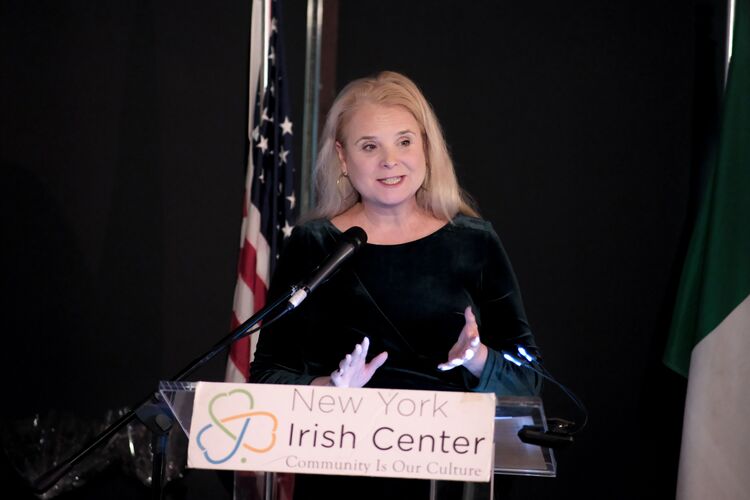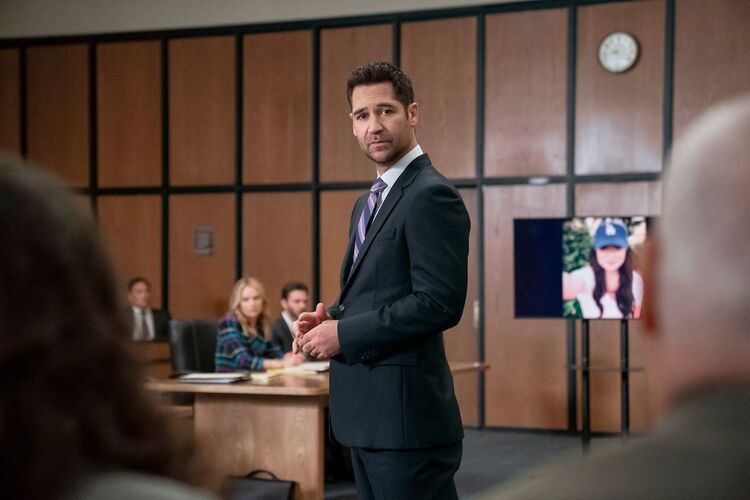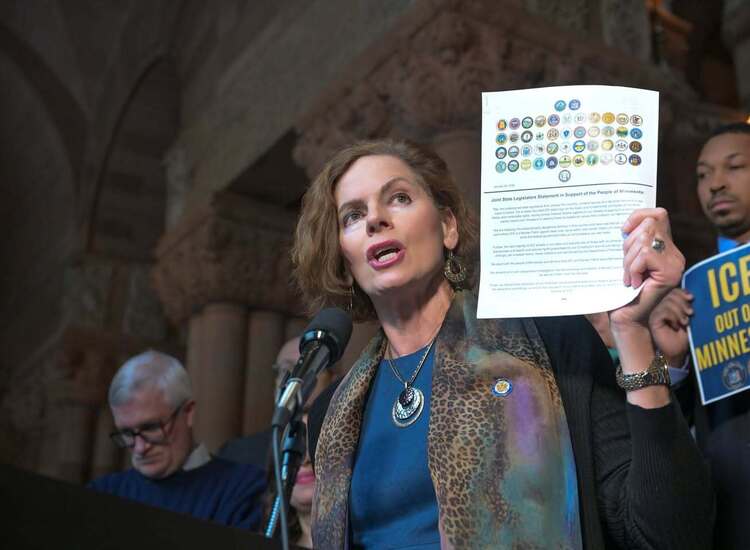A new book by Lawrence J. Haas takes a look at the Kennedy brothers in a global context
By Lawrence J. Haas
“The devastation is complete,” John F. Kennedy, then 28, wrote from Berlin in July of 1945, two months after World War II ended in Europe.
“There is not a single building which is not gutted. On some of the streets the stench – sweet and sickish from dead bodies – is overwhelming. The people all have completely colorless faces – a yellow tinge with pale tan lips... They sleep in cellars. The women will do anything for food.”
Jack Kennedy stopped in Berlin on his way to Potsdam, where he would cover the meetings among Truman, Churchill, and Stalin for Hearst newspapers. Joe Kennedy, Jack’s father, had arranged for him to work as a foreign correspondent for Hearst and, earlier that year, he covered the United Nations organizing conference in San Francisco and the British elections.
In later years – and also arranged by Joe – Bobby Kennedy would write from Palestine for the Boston Post, while Ted Kennedy would write from Africa for the International News Service.
All three brothers were gifted writers and, on their many trips around the world, they offered keen insights (in articles, letters, and diaries) about different peoples, cultures, and ideologies and what it all meant for the United States. And, when all three brothers reached the pinnacle of power, all three applied what they had learned on those trips to dramatically reshape America’s global role.
So, you think that you know everything about Jack, Bobby, and Ted Kennedy? Here’s a new story about America’s most iconic Irish brothers.
Joe and Rose Kennedy did not just groom their sons to compete and win, to attain and wield power. As I relay in what I would attest is rich, colorful, fast-paced prose in “The Kennedys in the World: How Jack, Bobby, and Ted Remade America’s Empire,” they raised them to learn about the world and shape America’s role in it. And, over the course of more than sixty years, all three brothers changed the world in profound ways.
“We learned early,” Ted Kennedy recalled, describing the spirited conversations about the world among the Kennedys, “that the way to be an active part of dinner conversation was to have read a book, to have learned something new in school, or, as we got older, to have traveled to new places.”
When they were old enough, all three brothers traveled widely, sometimes with one another but more with friends, colleagues, and mentors. All three traveled across Western Europe and behind the Iron Curtain. Jack and Bobby also traversed the Middle East and Asia, while Ted went to Africa and Latin America.
These were not trips of leisure. In many cases, Joe ordered the boys to go as part of what he considered their necessary education. At his urging, and often through his arranging, the boys met with American diplomats and military officials and with foreign leaders. Rather than lie on beaches, they walked streets, talked to people, and learned cultures.
Their trips of the mid-1950s showcased the breadth of their travels and the richness of their writings.
After a trip across Soviet republics in September of 1955, Bobby wrote, “The natives of this area, which was traveled by Marco Polo, conquered by Alexander the Great and Genghis Khan, and controlled by Tamerlane, are people of Turkish and Persian stock infused with a strong Mongolian strain. They are as different from their European Russian masters as the Moroccan is from the Frenchman or the Malayan from the Englishman. They have the high cheekbones and general appearance of the Oriental; their dress is oriental; their customs are oriental, and their food – I particularly remember one meal of scrambled lamb’s brains – is also oriental in style and content.”
From Morocco the following September, Ted wrote, “Changes, long pent-up, are erupting everywhere and moving with incredible speed; an inchoate leadership is still trying to find its footing; and the perspectives of a future foreign policy for Morocco are still wavering and sensitive to foreign negotiations. Finally, the future of Morocco will be determined to a large degree by what happens in the next months in Algeria and what kind of policy the United States can offer Africa by the start of the new year.”
From Poland a month later, Jack wrote, “Unlike Prague Airport, which features pictures of the Czech President and [Soviet Premier Nikolai] Bulganin together and the Czech and Russian flags crossed, here because of traditional hatred of Russia by the Poles the Communists dare display only the historic Polish eagle. . . . [W]e passed the largest building in Eastern Europe: The Palace of Culture, an enormous skyscraper in Soviet style decorated with oriental minarets. It was a ‘gift from the Russian people to their comrades in Poland’ and is a constant reminder, were one needed, as it looms oppressively over the city of Warsaw, of the constant presence in the heartland of Poland of the Soviet Union.”
The insights that Jack, Bobby, and Ted gleaned about Europe, Asia, Africa, and Latin America, about particular countries and leaders; about different cultures and ideologies; and about deep-seated hatreds and ongoing conflicts – all proved fodder for what the brothers later would do to change the world.
But, while they were all raised in the same home, and they all traveled widely, and they all put their insights to paper, they were not carbon copies of one another. How they viewed America’s role in the world, and how they sought to reshape it, also were influenced by a host of other factors.
Jack struggled throughout his childhood. He was bitter about the way Rose raised him, he was regularly bullied by the older Joe Jr. (the first son, who later died in World War II), and he struggled with a wreck of a body and multiple serious illnesses that left him in constant pain, making life a daily chore.
He seemed to project his struggles onto his country. For him, the question was whether – with an aching back and an ailing stomach – he could find the strength to walk streets, climb stairs, shake hands, and deliver speeches from early morning until late in the evening. For his country, similarly, he thought, the question was whether it could find the strength to protect itself and confront its aggressive adversaries.
Bobby, the seventh of nine kids, was a classic middle child, starved for attention between Joe Jr. and Jack and the younger Ted. To prove himself, he pursued reckless challenges throughout his life, swimming dangerous waters, skiing dangerous slopes, and climbing dangerous mountains. Overseas, he waded into hostile crowds even when his security details couldn’t guarantee his safety, and he was sometimes spat on and hit by eggs and tomatoes. He inspected dangerous mines to survey working conditions. He praised bravery, and courage, and guts, and he harshly criticized others for their cowardice.
So, not surprisingly, Bobby brought an aggressive, sometimes reckless approach to foreign policy when Jack was President. As a devout Catholic, he also brought a strong sense of morality to it. As a result, he viewed foreign policy like he viewed everything else – in terms of black and white, good and evil.
Ted was less passionate than Bobby and less of a deep thinker than Jack. But, among the brothers, he was by far the best politician. In childhood, he spent lots of time with his maternal grandfather, the former Boston mayor “Honey Fitz.” They met in his office in Boston, lunched in the dining room of his hotel, or walked the streets. Ted watched as Honey Fitz shook hands, traded stories, and offered condolences.
So, when Ted became a Senator at just 30, he already knew how to stroke egos, slap backs, and trade favors. He deferred to his political elders and learned the Senate’s byzantine rules so he could turn ideas into laws. And, through 46 years in the Senate, he had a greater impact in re-making America’s empire than either Jack or Bobby.
So, how did the brothers remake America’s empire? Well, read the book and find out.
Lawrence J. Haas, former communications director for Vice President Al Gore, is the author of the new book, “The Kennedys in the World: How Jack, Bobby, and Ted Remade America’s Empire.” His previous book, “Harry and Arthur: Truman, Vandenberg, and the Partnership That Created the Free World,” was named a Top Ten Nonfiction Book of 2016 by the Wall Street Journal.









